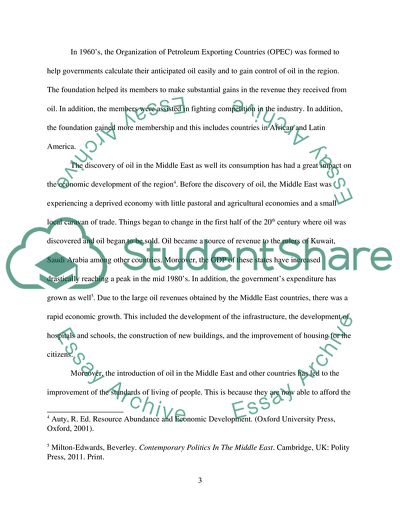Cite this document
(In What Ways Are the Economies and Political Systems of the Middle Coursework Example | Topics and Well Written Essays - 1750 words, n.d.)
In What Ways Are the Economies and Political Systems of the Middle Coursework Example | Topics and Well Written Essays - 1750 words. https://studentshare.org/politics/1880696-in-what-ways-are-the-economies-and-political-systems-of-the-middle-east-oil-led
In What Ways Are the Economies and Political Systems of the Middle Coursework Example | Topics and Well Written Essays - 1750 words. https://studentshare.org/politics/1880696-in-what-ways-are-the-economies-and-political-systems-of-the-middle-east-oil-led
(In What Ways Are the Economies and Political Systems of the Middle Coursework Example | Topics and Well Written Essays - 1750 Words)
In What Ways Are the Economies and Political Systems of the Middle Coursework Example | Topics and Well Written Essays - 1750 Words. https://studentshare.org/politics/1880696-in-what-ways-are-the-economies-and-political-systems-of-the-middle-east-oil-led.
In What Ways Are the Economies and Political Systems of the Middle Coursework Example | Topics and Well Written Essays - 1750 Words. https://studentshare.org/politics/1880696-in-what-ways-are-the-economies-and-political-systems-of-the-middle-east-oil-led.
“In What Ways Are the Economies and Political Systems of the Middle Coursework Example | Topics and Well Written Essays - 1750 Words”. https://studentshare.org/politics/1880696-in-what-ways-are-the-economies-and-political-systems-of-the-middle-east-oil-led.


